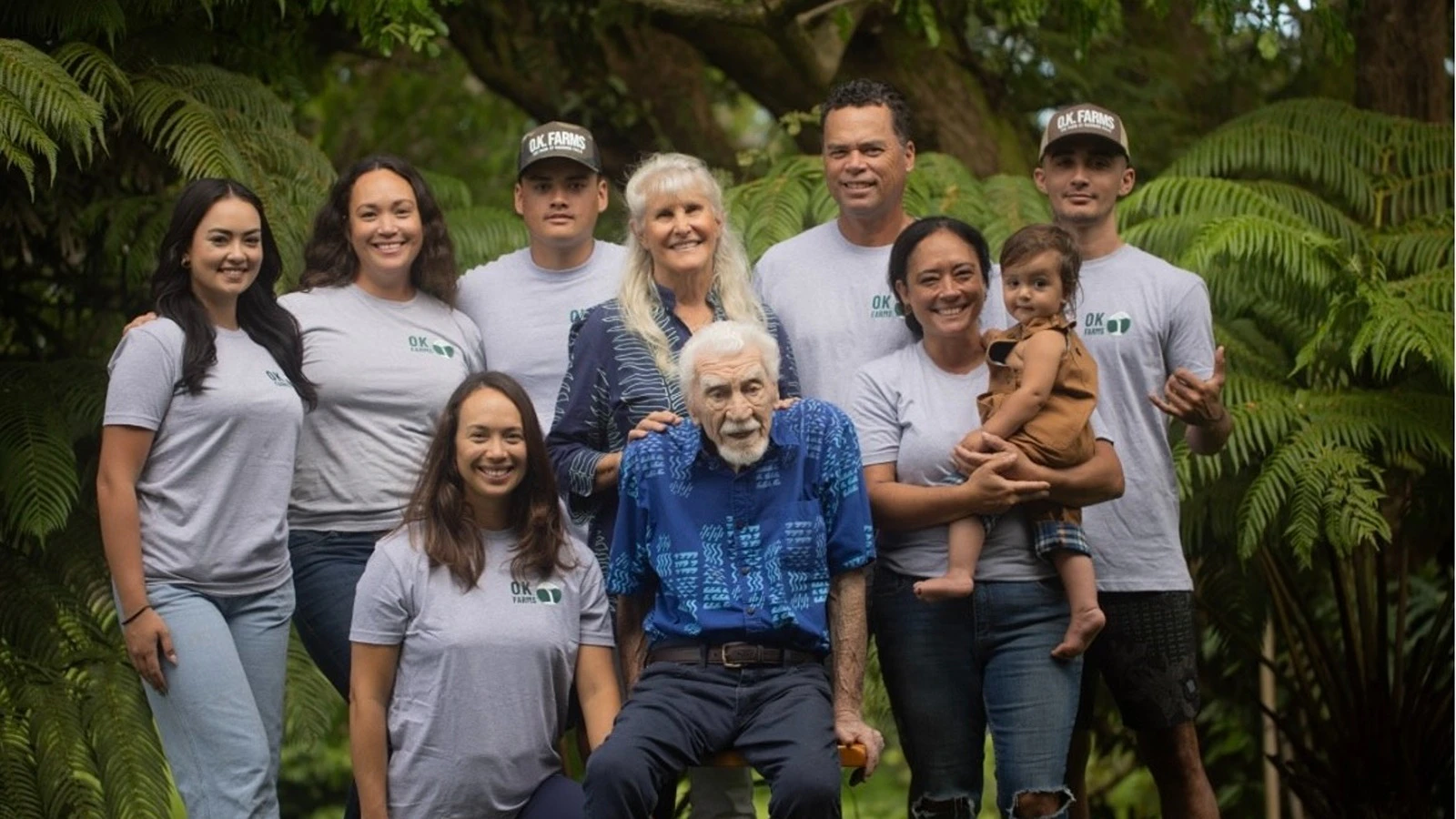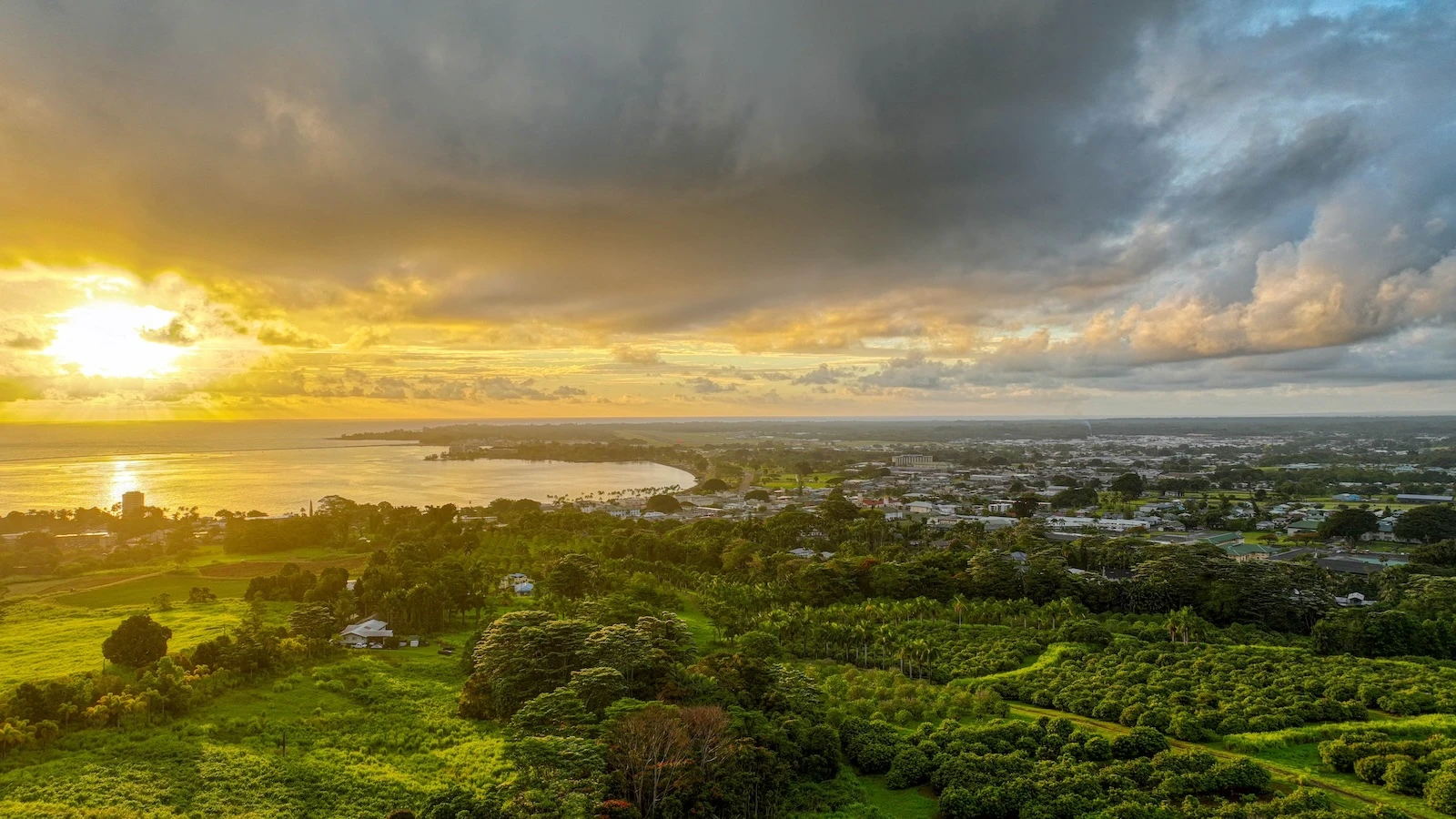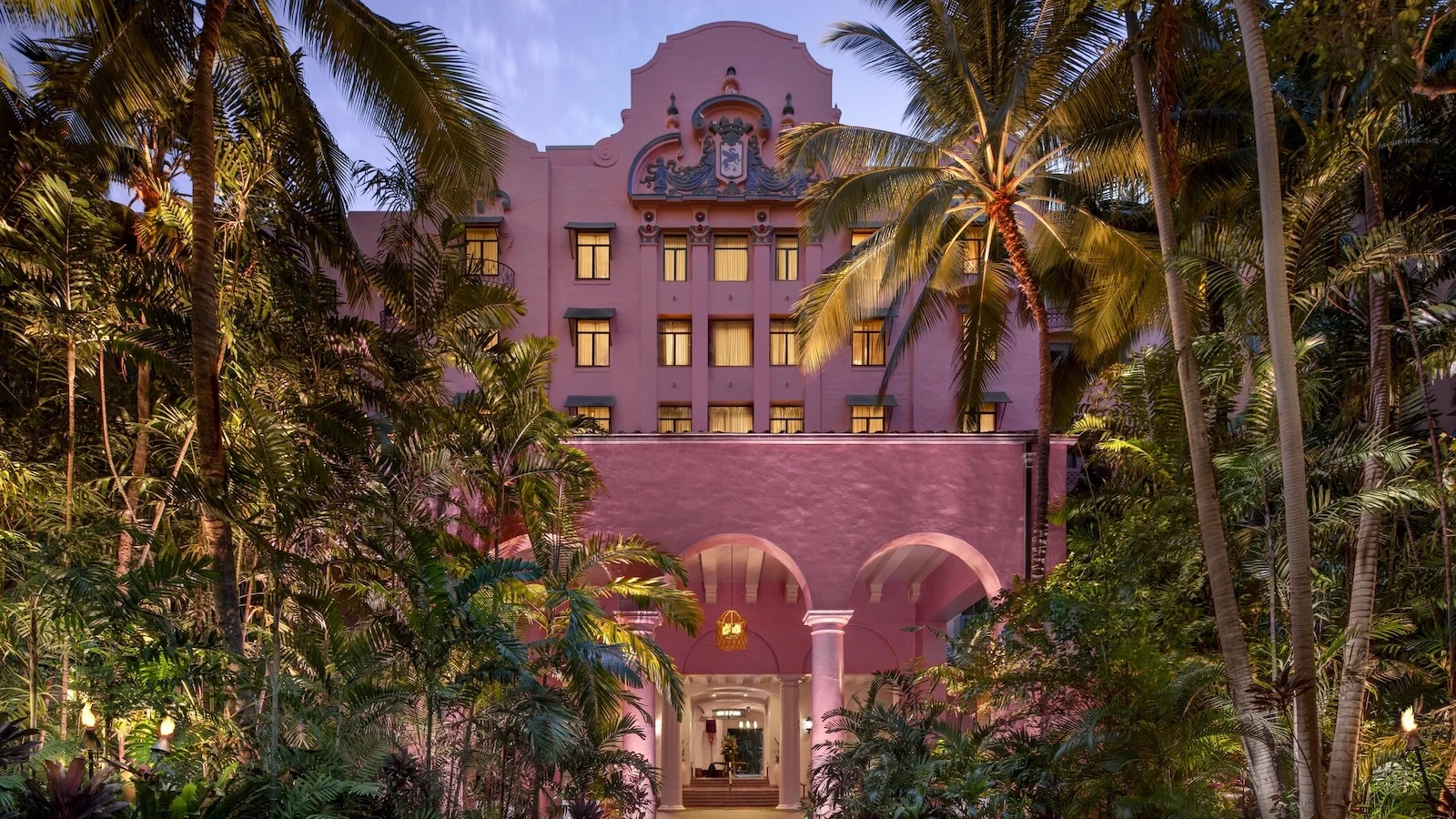A new conservation easement — a collaboration between Hawai‘i Land Trust, Trust for Public Land and O.K. Farms — ensures that productive ag land near Hilo will be used for agricultural purposes forever.
The Pu‘u‘eo Mauka conservation easement protects about 74.3 acres of land along the Wailuku River and Rainbow Falls that the Keolanui family, co-founders of the farm, have cared for and stewarded for more than 20 years.
The Farm was co-founded in 2002 by Troy Keolanui and the late Ed Olson, a businessman and philanthropist — Olson the ‘O’ in the name and Keolanui the ‘K.' Its mission is to "perpetuate sustainable agriculture in Hawai‘i." Today, the farm manages a total of 320 acres.
According to its website, the farm is one of the largest producers of tropical fruits in the U.S. and grows tropicals like lychee, longan, rambutan and citrus, macadamia nuts, coffee and heart of palm, as well as spices like cinnamon, allspice, cloves and nutmeg.
The farm was one of several businesses — including Superior Gunite and A-American Self Storage — that the San Diego-born Olson had founded during his life.
Keolanui says he met Olson “strictly by chance” in 1989 and started working for him shortly after.

“Ed was the guy that had the capital ability around the turn of the century to buy a lot of the C. Brewer land that was coming up for sale in large tracts because he was a very successful businessman,” Keolanui recently told Aloha State Daily. “… He had the capital and he wanted to do it. It’s kind of a small miracle that a successful guy like Ed chose to invest in agriculture in Hawai‘i. It’s really a blessing for the whole state, not to mention just us. ... In 2002, he bought this area here and he wanted to make O.K. Farms with me and my family, and we did it.”
The lands protected by the easement are “an important part of the watershed protecting Hilo Bay,” a recent announcement noted.
After Olson’s death a little more than a year ago at the age of 93, the Edmund C. Olson Trust offered the Keolanuis the first chance to buy the property, the announcement said.
"The easement ensures that the land will remain in agricultural use forever, safeguarding a crucial component of Hawai‘i Island's food security and cultural heritage," the announcement read.
HLT is a local statewide nonprofit land trust that protects and stewards land in Hawai‘i, while TPL is a national nonprofit that works to connect people to the “benefits and joys of the outdoors.”
According to the announcement, the organizations raised more than $1.6 million for the Pu‘u‘eo Mauka conservation easement, with contributions from the Maxwell/Hanrahan Foundation, Stupski Foundation, The Healy Foundation, Hawai‘i Good Food Fund, Eric L. Anderson and Roger Beck and others, the announcement noted.
Keolanui says Olson also worked with both HLT and TPL on land conservation efforts.
“He really stepped up to the plate and the legacy continues and we’re carrying this forward,” Keolanui told ASD. “It’s kind of a Hawaiian understanding, but it’s an understanding in my family that the land is up here. The land is No. 1. The people that have been walking around on the land for a very short time, only a couple thousand years, are just here to make it better, to steward the land. The land has been here for millions of years, and thank goodness this little piece of heaven right here is preserved forever. That’s a big deal. Perpetuity is a big word.”
Over the decades, Keolanui says they’ve seen land get parceled up and houses built.
“It’s just a really great feeling to know that the 20 years that we’ve put onto the land is going to be preserved,” he says.
Taking root
For Keolanui, farming is something that’s “rooted in me,” having spent summers on his maternal grandparents’ farm in Boring, Oregon.
“We’d go out there and pick berries and help my grandfather and stay on the farm,” Keolanui recalled. “It was a red-colored house with a barn, and it was real.”
That farm is gone and now there’s a store there.
“So doing what we did here, it’s a good feeling to us. We’re not going to lose any more farms.”
Keolanui says that sustainability and food sovereignty are "popular catch phrases" right now, but "getting that done is a different animal. That’s a different story. Talking about sustainability and achieving it are miles apart right now, in my opinion.”
“This is a good step, and O.K. Farms is that entity that wants to show that we can do it on basically a very small piece of land, but we all have to buy into it as a community,” he continued. “We can’t just do it and then not be supported. There’s only certain things we can grow in Hawai‘i and a lot of them aren’t sold at Target. People have to accept the concept of eating ‘ulu and eating kalo and kind of changing their mindset about what food sovereignty really does mean. It is so important to the state. I think everybody wants it. Everybody wants to get to that level, and we're just sort of the piko of making that happen, being a good example of how it can be done. Part of our mission is to share that with the community and invite the community in constantly. Every day the gates are open.”
What is an agricultural conservation easement?
In the same conversation, Lea Hong, associate vice president and Hawai‘i state director for TPL told ASD that an agricultural conservation easement is a “voluntary legal agreement” between a landowner and another “qualified entity,” such as a land trust or government agency.
“It permanently limits the use of land to protect its agriculture or ranching values and the landowner — in this case, O.K. Farms — retains many of its rights, including the right to own, the right to farm, the right to sell it, the right to pass it on to his or her heirs, but subject to those permanent restrictions and limitations,” Hong explained.
It’s a document recorded in the state Bureau of Conveyances, just like a deed, she noted.
With the conservation easement, Hong says there are things the landowner has the right to do, such as farm; and some uses the landowner is prohibited from doing, such as up-zoning, subdividing further, or building a residence or apartment complex, Hong says. Other things the owner might have to get permission for, such as building a processing facility or something on the land.
Every year, HLT will inspect the land and check its compliance to the terms of the easement, Hong noted. She says such easements can be a useful tool in Hawai‘i when buying farm or ranch land, “or if they’re land rich but cash poor, find ways to maximize the value of their land and reinvest monies into their operations.”
“It’s very helpful for landowners who, like O.K. Farms, are trying to buy land — and land is very expensive in Hawai‘i for farming, especially — and we can compensate the landowner for the removal of those rights. An appraisal is done, valuing what those rights are, and we can compensate the landowners, so that when you’re buying land, say it’s $1 million, maybe you only have to come up with a portion of that purchase price because you’re getting compensated for the conservation value.”
Hong says that value can sometimes range anywhere from 50% to 70% of the land’s value, based on how restrictive the conservation easement might be.
Hong says she reached out to Keolanui around Christmastime after hearing from a number of people in Hilo that Keolanui and his family had the opportunity to acquire the land from the Olson Trust but only had a year to pull the deal together.
‘Olu Campbell, president and CEO of Hawai‘i Land Trust, said the timeline was “quite a rush, but I think this was an ideal project — the project was set up so ideally that enabled us to get it done so quickly, just because there were already a lot of partnership in place.”
This was a “slam dunk,” he says, “and I think that was reflected in the response that we got from funders. … They’re much more than just an agricultural operation. They’re an operation that supports the community at so many different levels, and I think that leverage impact made it just a slam-dunk kind of project.”
For the latest news of Hawai‘i, sign up here for our free Daily Edition newsletter.
Stephanie Salmons can be reached at stephanie@alohastatedaily.com.





